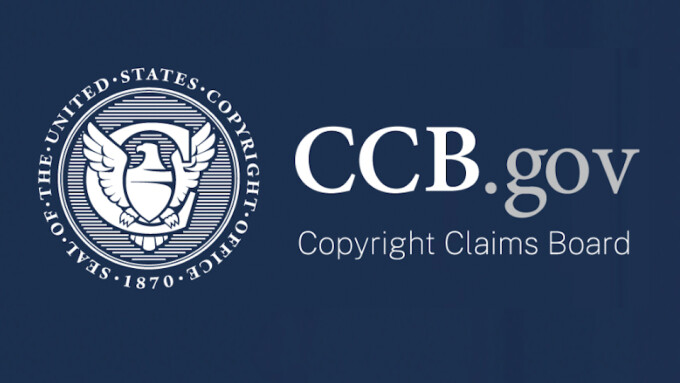WASHINGTON — The newly-created Copyright Claims Board, a “small claims court” for copyright disputes under $30,000 that has been denounced by digital rights advocates as a “disastrous” innovation, has officially begun accepting cases for review.
Congress established the brand-new, three-person CCB tribunal by passing the Copyright Alternative in Small-Claims Enforcement Act of 2020. The CASE Act was stealthily inserted as "pork" into Donald Trump’s thematically unrelated final COVID relief package, during the chaotic period between his election loss and the Jan. 6, 2021 insurrection.
The tribunal is comprised of three lawyers named David Carson, Monica McCabe and Brad Newberg, and is described on its website as “a voluntary alternative to federal court.”
The new CCB site declares that the tribunal is “an efficient, streamlined way to resolve copyright disputes involving claims seeking damages of up to $30,000 and is designed to be less expensive and faster than bringing a case in a federal court. The Copyright Office has developed procedures to handle these disputes as well as ‘eCCB,’ an electronic filing and case management system.”
Ever since CASE began making its way through Congress in 2019 and 2020, digital rights groups like the Electronic Frontier Foundation have warned against its potential for misuse.
As XBIZ reported, the EFF has warned that if an individual receives a CCB takedown notice, “maybe an email, maybe a letter — the law actually does not specify — and accidentally ignores it, you’re on the hook for the money with a very limited ability to appeal. $30,000 could bankrupt or otherwise ruin the lives of many Americans.”
In addition to the CCB, the CASE Act also created what the EFF terms “bad changes to copyright rules” which the internet civil liberties group says “would let sophisticated bad actors get away with trolling and infringement and might even be unconstitutional. It fails to help the artists it’s supposed to serve and will put a lot of people at risk.”
Silverstein Warns Caution
Industry attorney Corey Silverstein of Silverstein Legal spoke with XBIZ, expressing skepticism about the new “copyright small claims court.”
“Copyright claims should not be adjudicated by the same organization responsible for approving, rejecting and managing copyright registrations,” Silverstein noted. “This role is specifically meant for the judiciary. Fortunately, any party provided with a notice of this new type of proceeding has 60 days to opt out.”
Silverstein also emphasized that CCB decisions “will be viewed similarly to arbitration awards, meaning a person unhappy with the decision will have very limited appeal options.”
The tribunal's promotional material seems to encourage individuals to engage with it by claiming relative ease of use.
“Users of the CCB are permitted to have an attorney but can also represent themselves,” the tribunal offers. “CCB procedures are streamlined and conducted online. CCB proceedings involve far less money and time than federal court lawsuits. Participants in CCB proceedings are only required to provide limited basic documents and information, as opposed to the more complicated and costly process of exchanging evidence in federal lawsuits. CCB proceedings do not include the formal motions used in federal court, and any hearings are held remotely through video conferences.”
Silverstein, however, cautions those who may want to use the new CCB protocols to bear in mind that "if you opt out, that doesn’t necessarily end the dispute. The complaining party can still choose to proceed in federal court — as I believe they should be required to do from the start."
He added that the $30,000 cap on claims and the fact that discovery is "substantially limited" means that "for complex copyright disputes, this would be the wrong resolution forum."
Self-Declared 'Impartiality'
The tribunal’s own literature also declares that the CCB’s three officers “are impartial experts in copyright law.”
These newly-minted “Copyright Claims Officers,” the site adds, “have deep expertise in copyright law, making them well-suited to determine copyright matters involving various types of works.”
According to an opinion piece by Lawrence Walters of the Walters Law Group in the current issue of XBIZ World, “adult content creators and producers should familiarize themselves with this new option for combating piracy of their valuable content and consider pursuing claims where appropriate.”
Media outlets and online platforms, Walters added, “should likewise become educated on these issues and evaluate potential designation of an agent for receiving notice of claims to avoid lost or misdirected notices which could result in up to $30,000 in liability if not addressed.”
According to the experienced industry attorney, “this new option for pursuing copyright infringement is about to heat up, so expect significant activity in this area in the near future.”
Walters’ XBIZ World piece also includes a detailed breakdown of the CCB’s expected practices and policies.








